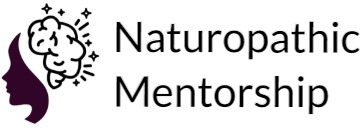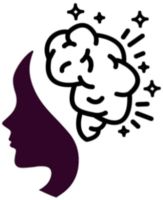PCOS and thyroid conditions are very common to see in a women’s health practice. These conditions affect approximately 1 in 10 women individually, but there is an undeniable correlation between the two. It has come to the point in my practice where I screen most of my PCOS patients for thyroid function and antibodies because I see them hand in hand so often! Now this has caused a bit of a stir in some situations and I have been told more than once that I am fishing but this recent article supports my practice. Today we will talk about just WHY we see these conditions go hand in hand and why screening PCOS patients for hashimoto’s thyroiditis (HT) is important to successful treatment outcomes.
Why are PCOS and thyroid issues connected?
A recent meta-analysis suggested that autoimmune thyroid issues exist in 26% of those diagnosed with PCOS and only 9.7% of controls. Given the population of people who choose to see us I would say my practice roughly resembles this but sits closer to 40-50% of my PCOS patients. The big question here is why? As seen below, the theories for this lay heavily in the connection between hormones and the immune system.
- High androgens can promote a Th1 immune pattern and contribute to the potential for autoimmunity
- Progesterone is protective against a Th1 dominant immune pattern and the lack of ovulation in PCOS contributes to low levels of progesterone
- Estrogen has a stimulatory impact on the immune system and in PCOS the estrogen to progesterone ratio is high
- The insulin resistant and inflammatory status of PCOS contributes to a predisposition towards more aggressive immunological attack against the thyroid
- Frequently in my practice I also see significant dysbiosis in PCOS, along with poor glutathione status. These two factors also contribute to autoimmune disease risk.
Treatment success requires an accurate diagnosis!
The symptom overlap between PCOS and HT is extensive. Outside of hirsutism and acne many of the symptoms of anovulation, weight gain, fatigue, inflammation and body pain, brain fog and miscarriage are common between the two conditions. This can result in treatment failure if you are simply exploring insulin sensitizing and antiandrogen therapies.
Now I know what you are going to say next, “But what if my patient doesn’t want to pay for testing out of pocket when they have no clinical symptoms?” This is completely understandable from a patient’s perspective but that is where our role as educators come in. If a patient has a family history of thyroid disease or a personal history of fluctuant TSH or postpartum concerns then supporting the patient to understand the connection and impact on treatment can often help them to see the value in testing. Additionally, I will tell my patients that we can begin treatment but if the symptoms discussed above are not significantly changing in three months time then we should explore further thyroid testing. Putting a timeline on this can help patients to overcome the disappointment of lack of progress and help them to see that something else may be going on. As a side note, when a patient is trying to conceive I rarely wait before testing because both PCOS and HT are associated with recurrent miscarriage and infertility and the sooner and more aggressively you treat the better the outcomes. Education in this population is incredibly empowering!
The link between women’s hormones and inflammation is absolutely undeniable! As those practicing in the area of women’s health, I think that it is our responsibility to intimately understand these connections and support our patients with both thorough assessment and proactive treatment. The connection between PCOS and HT is the perfect example of this and we cover this and so much more in our mentorship courses.
Romitti, M., Fabris, V. C., Ziegelmann, P. K., Maia, A. L., & Spritzer, P. M. (2018). Association between PCOS and autoimmune thyroid disease: a systematic review and meta-analysis. Endocrine Connections, 7(11), 1158–1167. doi:10.1530/ec-18-0309

